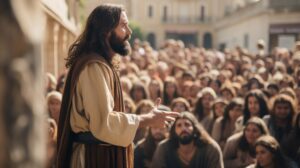Q: Why did churches stop keeping the Passover?
A: The Passover is an important truth of life. Jesus said, “Unless you eat the flesh of the Son of Man and drink his blood, you have no life in you” (Jn 6:53). But how did churches stop keeping the Passover?
The disagreement about the Passover began after all the apostles died, and the church split into two main parts: the Eastern Church and the Western Church. The Eastern Church continued to celebrate the Passover on the 14th day of the first month according to the sacred calendar. However, the Western Church decided to celebrate it on Resurrection Day, or Easter, instead. In AD 325, during the Council of Nicaea, church leaders argued that it was too hard to figure out the date of Passover, so they chose to fix the date to Easter.
This caused a lot of confusion among Christians. Two major disagreements happened before AD 325. The first one was in AD 155 when the Church of Rome started celebrating the Passover on Easter. The second disagreement was in AD 197, when the Bishop of Rome, Anicetus, tried to force all churches to celebrate the Passover on Easter. But many other churches disagreed, and Anicetus couldn’t make them change. In AD 325, at the Council of Nicea, Emperor Constantine decided to set the date of Passover Communion on Easter.
Christians who still kept the true Passover had to worship in secret, and they faced heavy persecution. Over time, the truth about the Passover disappeared, but it couldn’t stay hidden forever. As the prophecy says, “The Ancient of Days came and pronounced judgment in favor of the saints of the Most High, and the time came when they possessed the kingdom” (Dan 7:22). Jesus, the “Ancient of Days,” has come and restored the truth of life that had been taken away.






